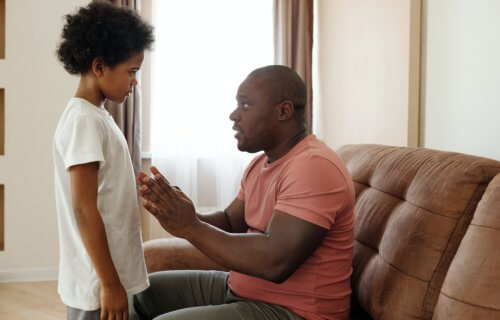SAN MARCOS, Texas — Maybe honesty isn’t always the best policy. Children are routinely told by adults to tell the truth, but researchers from Texas State University find many grown-ups would much prefer a more palatable version of the truth over the straight facts. Scientists report kids who tell the blunt truth (with phrases like “I don’t want this present – it’s ugly!”) are judged more harshly by adults in comparison to children who choose more diplomatic phrasing.
Study authors say these findings highlight the “mixed signals” adolescents often receive from adults when it comes to truthfulness and lying across various social contexts.
“This research tends to show there exists a complicated relationship with the truth that children must navigate to learn what is socially acceptable,” explains lead study author Dr. Laure Brimbal from the School of Criminal Justice & Criminology at Texas State University in a media release. “Most parents will have been embarrassed or upset by their children’s brutal honesty at some point. Learning to tell lies is a normal part of children’s social development.”
“Children are taught that lying is wrong, nevertheless they develop the ability to tell lies from an early age. To date, we know little about the mechanisms and processes that underlie the development and shaping of the critical social skill of prosocial lying, despite conflicting messages from adults about the acceptability of lying as opposed to truth-telling,” the researcher continues.
“What our results reveal is that children are learning about honesty in a quite complicated environment. It appears to be an important social skill to lie to fit in with other’s expectations, but this is in despite of potential conflicting messages from their adult caregivers that it is wrong to lie… whilst in addition, it is sometimes is perceived as unkind to be honest.”
Adults give ‘little, white lies’ a pass
This project included 267 adults, all living in the northeastern United States. Participants viewed videos of 24 children (ages 6-15) telling either the truth or lying across a variety of social situations. In some of those scenarios, the children lied to protect others. For example, a child lying about where their sister, who was in trouble with their parents, was hiding. Other situations led to lying out of politeness, such as telling a white lie or two to protect another’s feelings.
Participating children acted out four versions of “blunt” or “subtle” lies or truths. So, for the hiding sister scenario, the “blunt lie” was “she went to the library to do homework.” The subtle truth was “I think she might be outside.” The subtle lie was “I think she might have gone to bed or something,” and the blunt truth was “She’s under the porch.”
After watching each video, adults had to rate their impression of the child’s character. This rating encompassed perceived trustworthiness, kindness, reliability, competence, likability, intelligence, and honesty. Researchers also asked adults to imagine they were the child’s parent, and then rate how likely they would be to punish or reward the child for their lies or truths.
The results indicate adults judged the blunt truth-telling children far more harshly than kids who told vague truths or flat-out lies — but only if they told the lies in an effort to be polite. On the other hand, when a child lied to protect others, telling blunt truths or lies had less of an influence on how adults viewed the youngster.
Overall, the adults said they would “most reward” kids for telling “subtle truths” like “I think she might be outside” in the hiding sister example.
Kids pay attention to how adults react
These results are illuminating on both ends of the truth-telling relationship between kids and adults. Adults seem to perceive the lies kids tell differently depending on the context. Meanwhile, by analyzing which behaviors adults would reward or punish in children, the study also provides insight into how these childhood perceptions shape the adolescent process of learning to behave in a way that is acceptable to society, or “socialization.”
“Given the pervasive impact of socialization influences on children’s behavior, as well as the mixed messages children receive about lie-telling, it is little wonder that they engage in nuanced lie-telling from an early age,” Dr. Brimbal comments.
“Our study illustrates the degree to which adults are inconsistent in their evaluations and self-reported behavioral responses to children of different ages who lie or tell the truth. Questions remain as to whether their in-person behavior would follow suit, but it is likely that these contradictory explicit and implicit messages about honesty and dishonesty act as socializing influences and shape children’s early behavior.”
This project was, however, limited by its sample size and localized collection of the participants. However, there was an even split of men and women and a mixed range of ethnicities represented. Adult participants were even asked to indicate the believability of the children. This was done to help account for acting skill quality, which could have skewed the results.
Moving forward, the research team believes the next step is to analyze how these early socialization processes affect the development of children’s truth and lie-telling habits as they mature into adults.
The study is published in the Journal of Moral Education.

